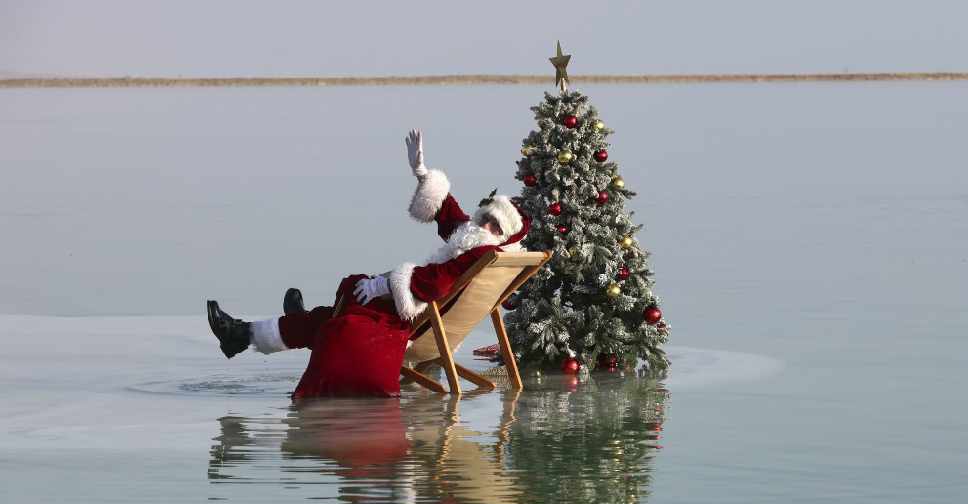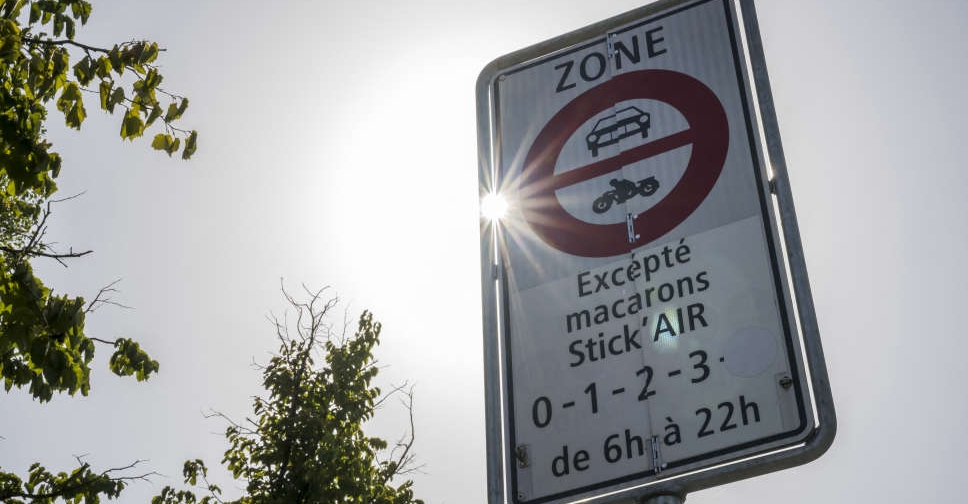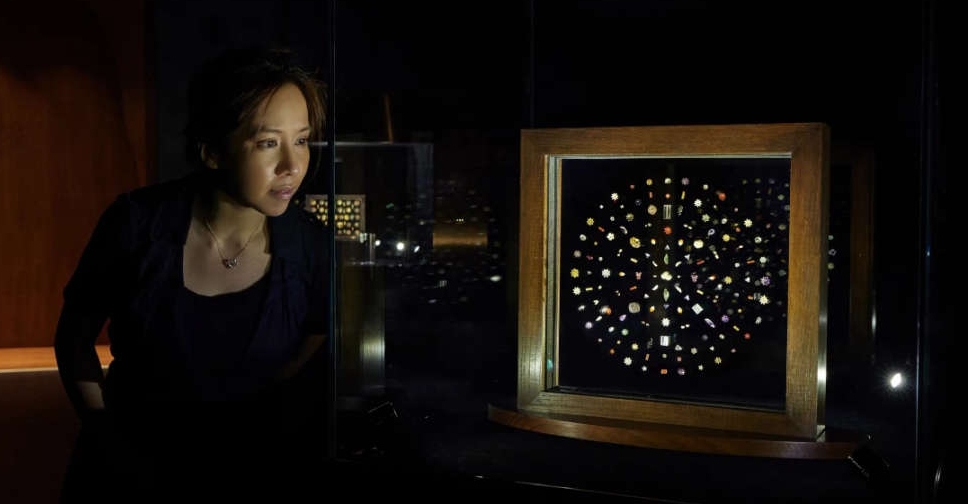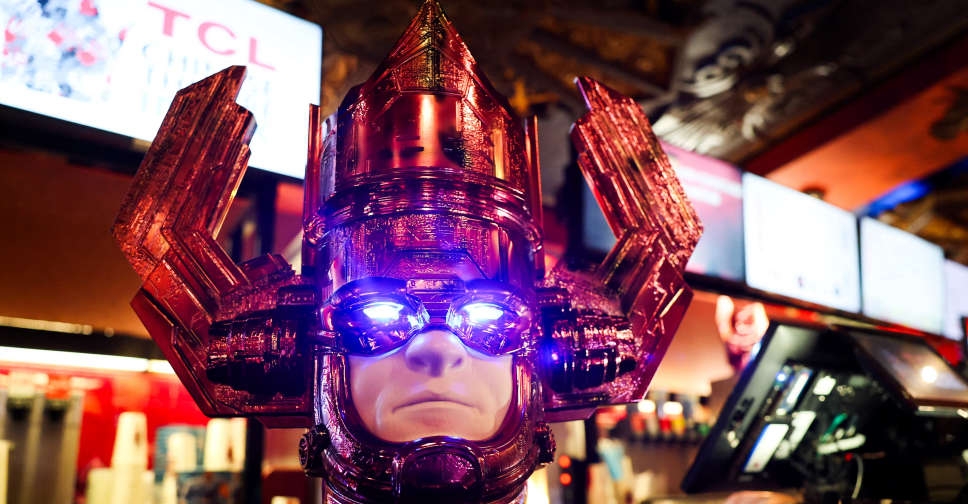
At the lowest point on earth, in the middle of a giant salt lake, a jolly man dressed in red with a flowing white beard stuck a Christmas tree in the ground and went for a swim.
Santa Claus came to the Dead Sea on Sunday ahead of the Christmas season, part of a campaign by Israel's Tourism Ministry to bring some Christmas cheer during a global pandemic that has kept Christian pilgrims away from the Holy Land.
He rode a paddleboard a few hundred meters offshore to a spot where salt has piled up in a massive mushroom shape, allowing him to stand in the middle of the otherwise much deeper lake.
With pomp and circumstance, he stuck a decorated Christmas tree in the salty bottom, struck a pose for cameras, and then enjoyed an effortless float in the Dead Sea's famous, saline-rich waters.
Beyond the compelling landscape, Christianity has roots in the Dead Sea, whose surroundings are abundant with remains of ancient Christian communities.
The Christmas tree, however, had no chance of surviving in the salty waters and Santa took it with him when he returned to shore.


 Robots race, play football, crash and collapse at China's 'robot Olympics'
Robots race, play football, crash and collapse at China's 'robot Olympics'
 Geneva makes public transport temporarily free to combat pollution spike
Geneva makes public transport temporarily free to combat pollution spike
 Macron to honour Paris' last newspaper hawker with medal
Macron to honour Paris' last newspaper hawker with medal
 Buddhist gems return to India after 127 years
Buddhist gems return to India after 127 years
 Marvel's $80 popcorn bucket sets world record in Los Angeles
Marvel's $80 popcorn bucket sets world record in Los Angeles




